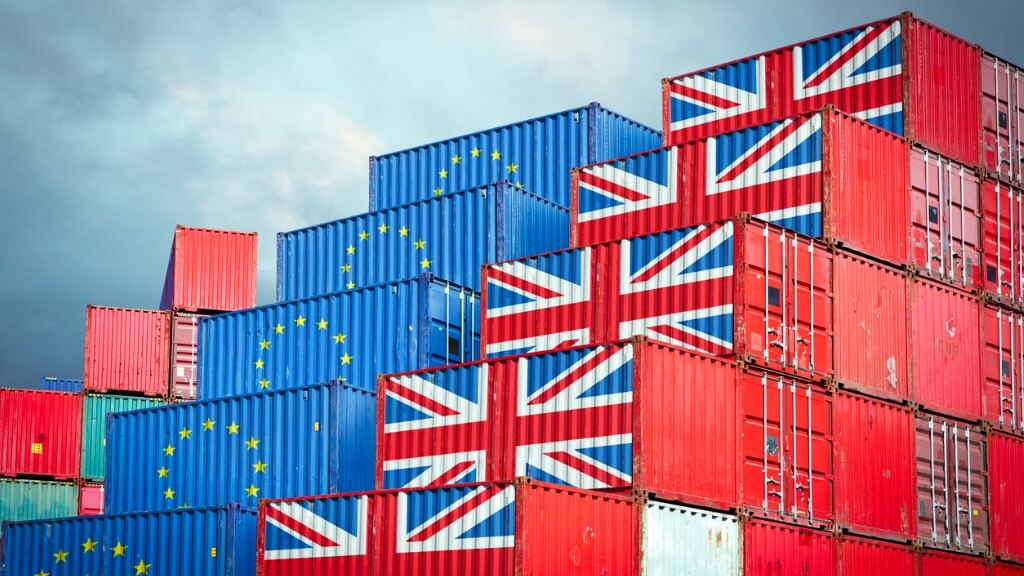Brexit uncertainty is hammering UK businesses, but with a few tweaks yours could emerge unscathed - even stronger.
The Businesses That Will Benefit From Brexit
Brexit uncertainty is hammering UK businesses, but with a few tweaks yours could emerge unscathed - even stronger.

With news breaking that a supposed third of UK businesses are considering a move abroad due to Brexit, it’s clear that many companies see Brexit as a negative and are fearful for what this could mean for their future.
The lack of progress ahead of an impending deadline has caused many to fear that they will be worse off post-Brexit, and while this may well be the case for some, doom and gloom surrounding Brexit is not all-encompassing.
Some businesses may actually benefit from Brexit, no matter the outcome. Further to that, there are elements of best practice businesses can undertake to ensure they’re not a Brexit victim.
Providing the fundamentals
With Brexit likely providing added complexities for a number of businesses, companies will be looking to find solutions to combat those problems.
Whether it’s the extra paperwork associated with new duties and customs or simply the need to cut staff due to diminishing profits; CEOs and directors will be looking at ways to make their business more productive in order to compete.
This is where the success of other companies comes into play. The businesses who will benefit from Brexit are the ones that offer solutions that are essential to a business, improving efficiency and productivity.
The Office of National Statistics (ONS) recently reported that UK productivity from July to September 2018 only rose 0.2%, compounding the 10-year productivity slump in the UK; prompting questions of how British businesses can best tackle the problem.
Clearly, there’s a need for businesses to be more efficient, and Brexit will likely exacerbate that problem for some businesses, particularly if they are set on making staff cuts, so have less staff to carry the load.
But, on the other hand, this does mean that the businesses who offer essential, daily-use, functional products will continue to have success, and in many ways, they may be in the unique position of benefitting from Brexit. Products that are at the core of the operation of any business will still be in demand; be it payroll, accounting, or HR software – there are simply some things that a business can’t live without.
As a result of dropping productivity or a need to find efficiencies, the companies that provide these products will be the ones who benefit from this situation as this is one of a few areas that businesses will still be investing in. Anything that streamlines processes to save time and, or money will be gold-dust at a time where the threat of losing a business and additional paperwork may coincide.
The importance of finding efficiencies
That said, it shouldn’t have to take a significant event such as Brexit, which will impact people across all industries in some form or another, for businesses to realise that investing in technology and processes is a wise investment.
There seems to be a core trend within the corporate world to make small tweaks here and there to improve the operational capacity of a company rather than confronting the elephant in the room. It seems as though many would rather look for different management techniques or structural changes to a business rather than replacing the legacy technology that is holding them back.
Perhaps it’s a cultural thing, but regularly undertaking time-consuming staff changes in a bid to achieve better results is not prudent; it’s a time drain and for the price it costs financially, they could easily afford to make operational changes to tech that is up-to-date, communicates seamlessly with existing tech within the business, and helps staff to do their job better.
Digital transformation has become a buzz word and has perhaps become taboo in the business world but that needn’t be the case. Companies don’t have to disrupt the entire business to improve their technology – in fact they don’t need to change much at all to have a truly transformative effect.
Investing in necessities is good practice
Brexit is fast-approaching, and for many businesses, they feel as though there is a lack of clarity on how they should be preparing and what they should be preparing for. It’s a confusing and worrying time for many, which can often bring about rash decisions. Without guidance from authorities, businesses should be taking simple measures that will continue to help their business.
Investing in technology that you use every day, and provides obvious value for money, in terms of driving efficiency and productivity, is a good investment at any moment in time – it’s simply good practice. That’s why the businesses who provide these crucial solutions will be the success stories of Brexit.
Chris Marjara is CMO at Access Group.
Thanks for signing up to Minutehack alerts.
Brilliant editorials heading your way soon.
Okay, Thanks!

